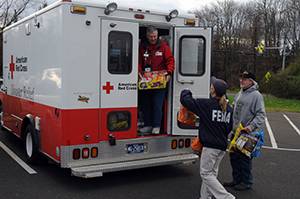The International Travel Clinic provides health information, immunizations, and medications to maintain health and prevent illness during travel outside of the United States.
Health
Health
The Sexual & Reproductive Health Program provides accessible and confidential care and education to people of all identities and ages through same or next-day appointments if available. Teens are welcome in our clinics and can use our services without parental consent.
The Postpartum Home Visit Program's overall objectives are to assess the health of moms and newborns in the first week of the postpartum period to promote the safety and well being of both after discharge from the hospital. This is accomplished through assessment of mom and baby, evaluation, and observation in the home environment.
Early intervention in the life of a newborn and it’s mother is the best way to prevent problems such as:
The Nurse Advisor Program to the Department of Human Services (DHS) provides assessment data, nursing medical advice and clarification of medical terms, assigned visits with clients and family members, and other case related information as requested by DHS Case Workers concerning high risk reported cases of suspected neglect/abuse, failure to thrive, severe bodily injury cases, and provide assessment and evaluation of infants and children ages 0-6.
Leigh Ann Frost, RN, BSN
Maternal, Family, & Nutrition Manager
970-498-6731
frostle@co.larimer.co.us
 The Larimer County Department of Health and Environment's Emergency Preparedness and Response Program (EPR) leads efforts in preventing, responding to, and recovering from emergencies that impact public health.
The Larimer County Department of Health and Environment's Emergency Preparedness and Response Program (EPR) leads efforts in preventing, responding to, and recovering from emergencies that impact public health.
View the Restaurant & Grocery Store Inspections Database Here
Food Safety Program
The food safety program protects public health by working to reduce the factors that cause most foodborne illnesses, ensuring that food sold and served to the public is free of contamination and spoilage and promoting compliance with state food safety laws and regulations through education and enforcement.
Last updated 2015
7.6.1.B
Playground sandboxes must be covered at the end of each day to help keep them free of cat and other animal excrement, litter and debris. This requirement only applies to designated sand boxes and does not include sand used as a resilient material or other ground covering.
Radon
Illness Prevention
